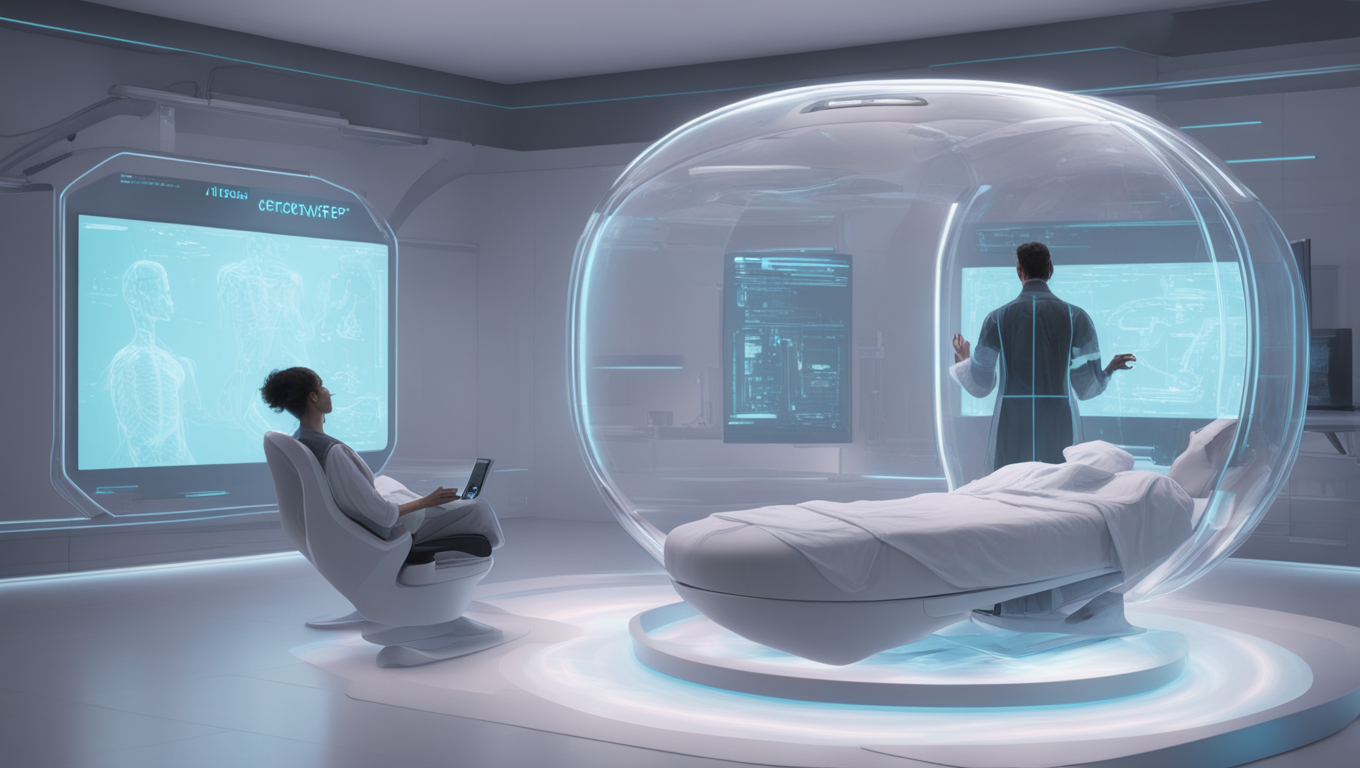Imagine stepping into a futuristic pod and receiving a full-body scan, a blood test, and a personalized health plan within minutes. This may seem like something out of a sci-fi movie, but it is soon becoming a reality thanks to a company called Forward. Their flagship product, CarePod, is being touted as the world’s first AI doctor’s office.
CarePod is an AI-powered, self-service pod that combines artificial intelligence with medical expertise. Inside the pod, individuals can access various health apps that offer advanced diagnostics and personalized health plans. These apps are powered by Forward’s proprietary AI, which was developed by doctors from prestigious institutions like Harvard, Johns Hopkins, and Columbia. The apps cover a wide range of disease areas, from chronic conditions like diabetes and hypertension to mental health issues like depression and anxiety. Forward plans to expand their offerings to include prenatal care, cancer screening, and polygenic risk analysis in the future.
Membership for Forward starts at $99 per month, granting individuals access to their personalized health data through a mobile app. The platform allows for real-time monitoring, risk identification, and in-depth health evaluations using a range of sensors, lab tests, and vital sign measurements. While the system is primarily AI-powered, Forward also has a team of over 100 primary care clinicians who make all care decisions.
CarePods are already being deployed in 19 locations across the United States, with plans for expansion. These pods can be found in various locations like malls, gyms, and offices, making healthcare more accessible to individuals. Forward aims to reach more people and improve health outcomes by bringing CarePods to places where people already spend their time.
While Forward is not the only company attempting to revolutionize healthcare with AI, they believe that their CarePods offer a unique and comprehensive health experience due to their combination of AI, human expertise, and cutting-edge technology. The company’s mission is to make healthcare more accessible, affordable, and personalized for everyone, regardless of their income, location, or background.
However, challenges and limitations exist for self-service AI healthcare pods. Regulatory hurdles, privacy concerns, and user adoption are among the potential obstacles. Some individuals may be skeptical or uncomfortable with relying solely on an AI system for their healthcare needs. Emergency physician Dr. James Rhorer raises concerns about the absence of human interaction in the virtual visit setting, highlighting the importance of the personal touch in healthcare.
There are also health conditions that may require more than just a visit to a pod, such as physical examinations, prescriptions, or referrals. It remains to be seen how CarePods will fare in the real world and whether they can deliver on their promise of transforming healthcare with AI.
AI healthcare pods like CarePods offer an innovative approach to healthcare that aims to make it more convenient, affordable, and personalized. While they have the potential to revolutionize the industry, there are challenges and limitations that need to be addressed. The future of healthcare may be a combination of AI technology and human expertise, ensuring a holistic approach to patient care.





Use the share button below if you liked it.